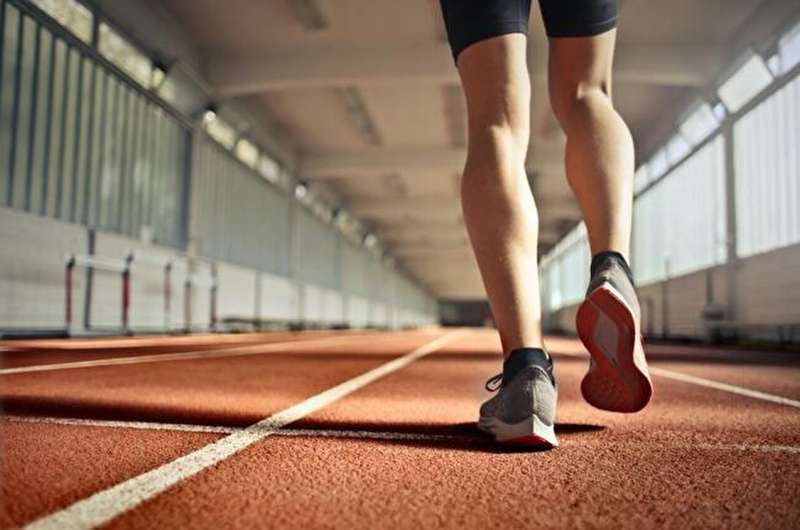This article has been reviewed according to Science X's editorial process and policies. Editors have highlighted the following attributes while ensuring the content's credibility:
fact-checked
proofread
Hyaluronic acid shows strong results in Achilles tendon injuries

New data presented at the Isokinetic Football Medicine Conferenceheld May 25–27 in London has revealed significant improvement in professional athletes with Achilles tendon injury using a treatment of bio-inductive and multi-fractioned hyaluronic acid (HA) injections.
The discovery gives hope to sufferers of this painful and debilitating injury.
Clinical results indicate that treatment of tendinopathies with bio-inductive and muti-fractioned hyaluronic acid promotes and biologically induces the natural self-repair mechanism of the tendon, ensuring a rapid reduction of pain and a rapid recovery of normal function and physiological structure of the tendon and consequently a pain-free ability to move, maintaining these benefits over time.
Dr. Matthew Stride, Isokinetic Sports Doctor and former Club Doctor at Brentford FC, said, "This is a very significant study and is a really good example of how the management of tendinopathy in elite athletes can be implemented to help the wider population.
"Associated pain and stiffness associated with this tendinopathy can cause resulting loss of function, ability to exercise and perform and simply just enjoyment. Therefore, reducing this pain will allow a great efficacy of physical treatment, appropriate loading and quicker transition back into exercise again without any invasive procedures. This is a very exciting development and one I look forward to working with many patients on."
The study included 60 patients (39 male and 21 female) with an average age of 32 years, and all professional athletes in football, volleyball, tennis and boxing. All patients trained for 30 hours per week plus competition. Injections were guided by ultrasound. The molecular weights of the hyaluronic acid used are 2-100-200-500 kDalton and 1MLN Dalton.
New data from a separate study on the load borne on the Achilles Tendon (AT) during exercise was also presented at the Isokinetic conference. The Achilles tendon can be exposed to considerable stress during athletic activities and is often subject to pathologies such as tendinopathies. When designing a prevention or rehabilitation protocol, mechanical loading is a key factor to consider.
This implies being able to accurately determine the load applied to the AT when performing exercises. The objective of the study was to investigate load borne by the AT during activities (walking and running) and strengthening exercises that solicit the AT.
The load borne on the AT ranged from 2.7 to 3.95 BW when walking compared with 4.15 to 7.71 BW when running. The data showed that strengthening exercises specifically designed for the Achilles Tendon can mitigate and lower the load borne during exercise.




















